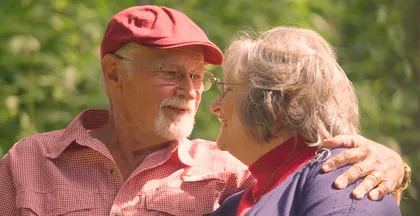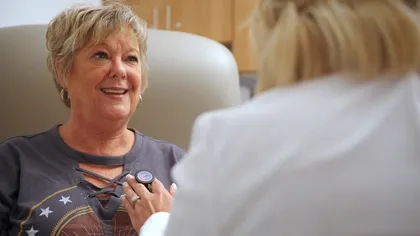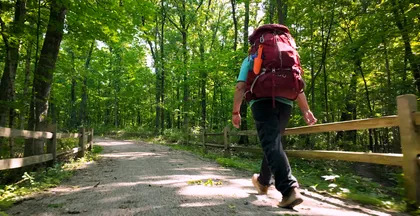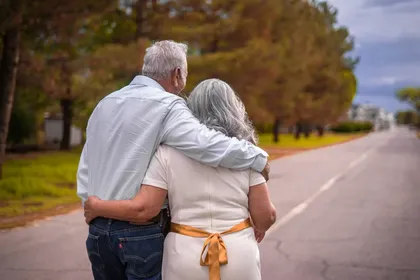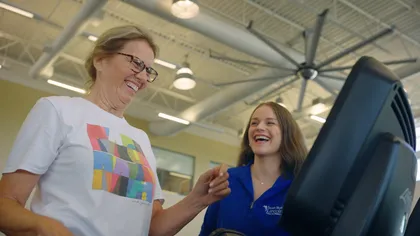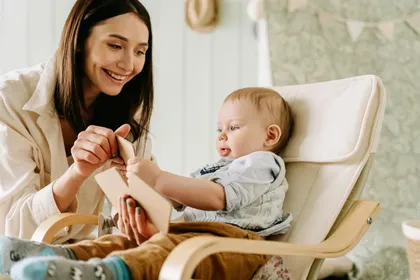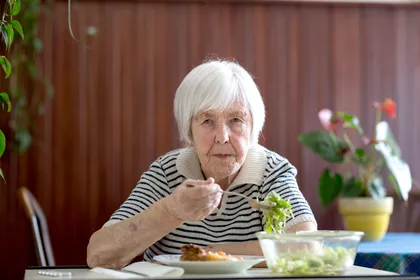As the community and the country at large tries to achieve herd immunity with the COVID-19 vaccine, there are countless residents who are resistant to the vaccine due to its novelty and question its efficacy.
SBL VP Medical Affairs Jim Hildebrandt, DO, explained that scientists unanimously agree receiving the COVID-19 vaccine is much safer for people than contracting the disease itself. COVID-19 has dealt a devastating blow to people’s health, regardless of age, race, gender, or background. The virus is random – testing, social distancing, and masks can help reduce infections, but vaccines drastically prevent hospitalizations that over-whelmed hospitals.
Sarah Bush Lincoln has hosted numerous COVID-19 vaccine clinics to the community since January. Dr. Hildebrandt said “We have heard concerns of the unvaccinated and want to address those who are still ‘on the fence’ about receiving the COVID-19 vaccine.”
Which vaccine should I get?
Ultimately, people should get the first vaccine available to them. All of the vaccines strongly protect people from hospitalizations and infections.
What happens if I only get the first dose of Moderna or Pfizer?
Your body will have a lower chance of creating protective antibodies against COVID-19 if you only get the first dose. Protection against infection also may not last as long as it would with both doses.
I had COVID-19. Does this mean I am protected from catching it again? Should I get the COVID-19 vaccine even if I had the virus?
If you contracted COVID-19 and recovered from it, you likely have some protection against the virus. However, your natural immunity is not as high as it would be with the vaccine.
What does herd immunity mean?
Herd immunity refers to the degree at which a population has protection against an infection. Once a population reaches a certain percentage of immunity, the virus will die out over time. The virus won’t be able to spread, mutate, and ultimately, harm people, at that point. Pinpointing an exact percentage required to reach herd immunity is challenging because many factors impact this percentage. However, scientists estimate that 70 to 90 percent of the population will need to be vaccinated to reach herd immunity against COVID-19.
Are the COVID-19 vaccines protecting people against new strains of the disease?
Data shows that the COVID-19 vaccines protect people well against these new strains appearing around the world. The protection levels may not be in the same range compared to the original virus, but people are safer from the new virus strains when they have received a vaccine. One of the reasons to get vaccinated is to protect against mutations of the disease that could be more aggressive and infectious. Every time COVID-19 is passed from one person to another, there’s an opportunity for it to morph into something more dangerous.
Is the vaccine safe for women who are pregnant, breast-feeding, or a child-bearing age?
Women who are pregnant show higher risk for being hospitalized or on a ventilator, should they contract the virus. Scientists continue to collect more data, but a study in Obstetrics & Gynecology showed that researchers found no evidence that either the Pfizer or Moderna vaccines damaged the placenta during pregnancy. There is no evidence that women in child-bearing years should not be vaccinated. Each woman should talk to her provider and weigh the pros and cons. Again, the same for breast feeding women.
Do I still have to wear a mask after getting the COVID-19 vaccine?
As of May 13, the CDC says fully vaccinated people don’t need to wear face masks indoors or outdoors in most settings. Fully vaccinated means two weeks after you have received all of your vaccine doses. Masks will still be required in healthcare settings, at businesses that mandate them, or on public transportation.
Can I still be a carrier if I have had the COVID-19 vaccine?
Theoretically, yes. It’s possible that a person could have the virus reproducing in his or her body without ever knowing it and could asymptomatically transit the disease. Data suggests that this is not the case for COVID-19, but scientists do not have a conclusive answer yet.
How can I know for sure if should I get the vaccine?
If you still have questions about whether the COVID-19 vaccine is right for you, ask your primary care provider. The vaccine is free to all Americans.

